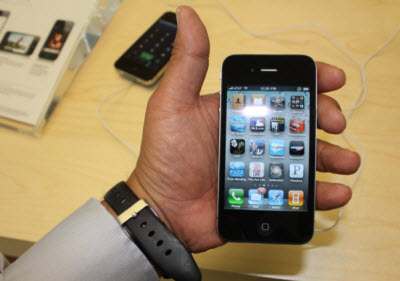 Jailbreaking fans can rejoice. The Electronic Frontier Foundation has just secured legal exemptions to copyright law that will allow users to hack their phones and run software that phone makers or carriers haven’t authorized.
Jailbreaking fans can rejoice. The Electronic Frontier Foundation has just secured legal exemptions to copyright law that will allow users to hack their phones and run software that phone makers or carriers haven’t authorized.
Many users “jailbreak” their phones by using software to unlock them so they can use different carriers or just run unapproved apps. The EFF convinced the copyright office to grant three exemptions to the Digital Millennium Copyright Act. In the past, companies such as Apple have argued that hacking your phone was a violation of the DMCA.
The exemptions to the DMCA law include computer programs that enable mobile phones to execute software apps, where the point of the program is to allow the interoperability of legally obtained apps with software on the phone. The exemptions also cover computer programs that let phones connect to a wireless telecommunications network, when access to the network is authorized by the operator of the network. The full decision by the U.S. Copyright Office is here.
The EFF says that those who modify their cell phones and artists who remix videos can now do as they wish, legally. More than a million iPhone owners are said to have jailbroken their phones so they can get apps from sources other than Apple’s iTunes App Store, or change wireless providers.
“By granting all of EFF’s applications, the Copyright Office and Librarian of Congress have taken three important steps today to mitigate some of the harms caused by the DMCA,” said Jennifer Granick, EFF’s Civil Liberties Director, in a statement. “We are thrilled to have helped free jailbreakers, unlockers and vidders from this law’s overbroad reach.”
The exemptions were granted as part of a statutorily proscribed rulemaking process, conducted every three years to mitigate the danger the DMCA poses to legitimate, non-infringing uses of copyrighted materials. You still can’t circumvent digital rights management and other protection measures in most cases. In a statement, Apple said, “Apple’s goal has always been to insure that our customers have a great experience with their iPhone and we know that jailbreaking can severely degrade the experience. As we’ve said before, the vast majority of customers do not jailbreak their iPhones as this can violate the warranty and can cause the iPhone to become unstable and not work reliably.”
Apple argued in this jailbreaking case that copyright law prevents people from installing unapproved programs on iPhones. But the EFF successfully argued that making a phone interoperable amounts to fair use. Copyright law says that if you pay for something, you have the right to use it as you wish as long it is not for some kind of commercial benefit.
“Copyright law has long held that making programs interoperable is fair use,” said Corynne McSherry, EFF’s Senior Staff Attorney. “It’s gratifying that the Copyright Office acknowledges this right and agrees that the anticircumvention laws should not interfere with interoperability.”
EFF also won protection for video remix artists currently thriving on Internet sites like YouTube. The new rule says that amateur creators don’t violate the DMCA when they use short excerpts from DVDs in order to create new, noncommercial works for purposes of criticism or comment. Hollywood studios have argued that copying DVD content is a violation of the DMCA, no matter what the purpose.
VentureBeat's mission is to be a digital town square for technical decision-makers to gain knowledge about transformative enterprise technology and transact. Learn More
